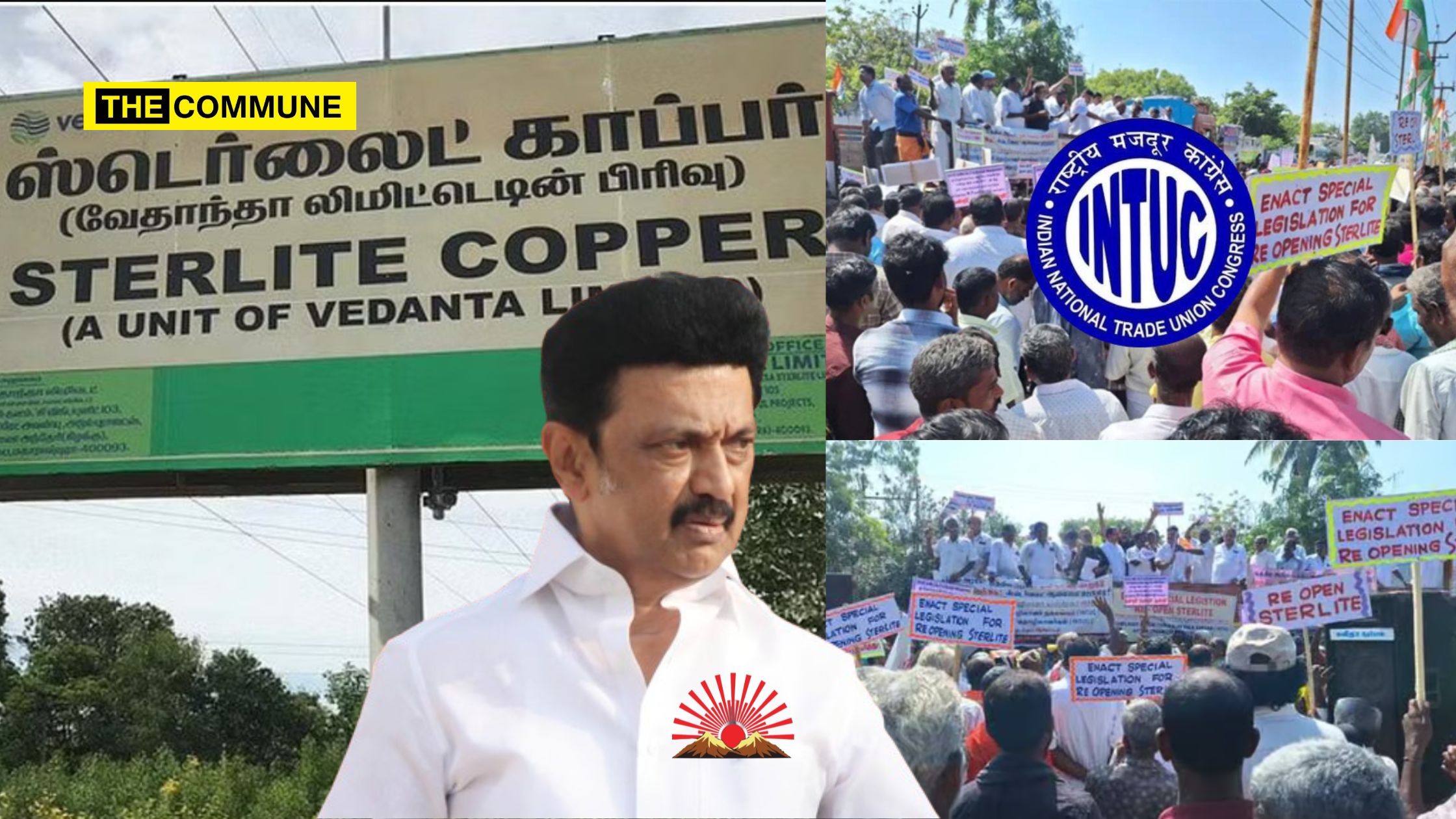
The Indian National Trade Union Congress (INTUC) has questioned the continued closure of the Sterlite Copper plant in Thoothukudi, pointing out that similar smelters in other parts of the country have been allowed to operate. INTUC national secretary Kathirvelu criticized the apparent policy inconsistency, arguing that if environmental concerns were the reason for the shutdown, then the same standard should apply to other copper plants across India.
The Vedanta-owned Sterlite plant was shut down in 2019 following widespread protests over alleged environmental violations, which culminated in police firing that killed 13 demonstrators. The Supreme Court in February 2024 declined permission for its reopening, citing “serious environmental violations and repeated breaches.”
Economic Consequences Of Closure
Despite the court’s ruling, INTUC and industry representatives argue that the factory’s prolonged closure has had severe economic consequences. Kathirvelu stated that thousands of jobs have been lost, particularly in small and medium ancillary industries that relied on the smelter. He pointed out that India’s copper production has dropped since the shutdown, increasing dependence on imports, which could have been avoided if the plant had remained operational.
Kathirvelu also criticized the Tamil Nadu government, stating that while it cites environmental concerns, other states have allowed copper smelters to function, raising questions about whether the Sterlite closure was politically motivated.
Previous Protests
The Namakkal Lorry Owners’ Association and Namakkal Trailer Owners’ Association protested on 6 January 2024, pointing out that the plant’s closure disrupted the transport sector, affecting 6,500 trucks and forcing over 600 lorry owners into alternative jobs. The shutdown has caused a daily economic loss of ₹10 crore, increasing financial instability. Protesters suggested reopening the plant with strict environmental controls to mitigate pollution concerns.
Similarly, the Indian National Trade Union Congress (INTUC) led a protest in December 2024, demanding legislative action to revive the plant. INTUC leaders, including Kathirvel, emphasized that the closure harmed socio-economic development, leading to mass unemployment in Thoothukudi. He warned that India risks becoming a net copper importer, affecting thousands of workers across industries.
In February 2025, the Thoothukudi Contractors’ Association joined the demand, highlighting job losses for 20,000 workers and severe financial strain on 400 SMEs, with income levels dropping by 40%. They have called for a Government Order to restart operations.
Protest Blocked By Police
Trade unions, workers’ associations, and local groups had planned a protest on 20 February 2025 demanding the reopening of the plant and other closed industries in the region. However, police denied permission for the demonstration, citing law and order concerns, after two rounds of peace talks in Thoothukudi. Kathirvelu claimed that around 30,000 people had gathered for the protest but were stopped at the last minute. He added that INTUC may approach the court to challenge the decision and push for the reopening of the plant.
(With inputs from Business Standard)
Subscribe to our channels on Telegram, WhatsApp, and Instagram and get the best stories of the day delivered to you personally.




